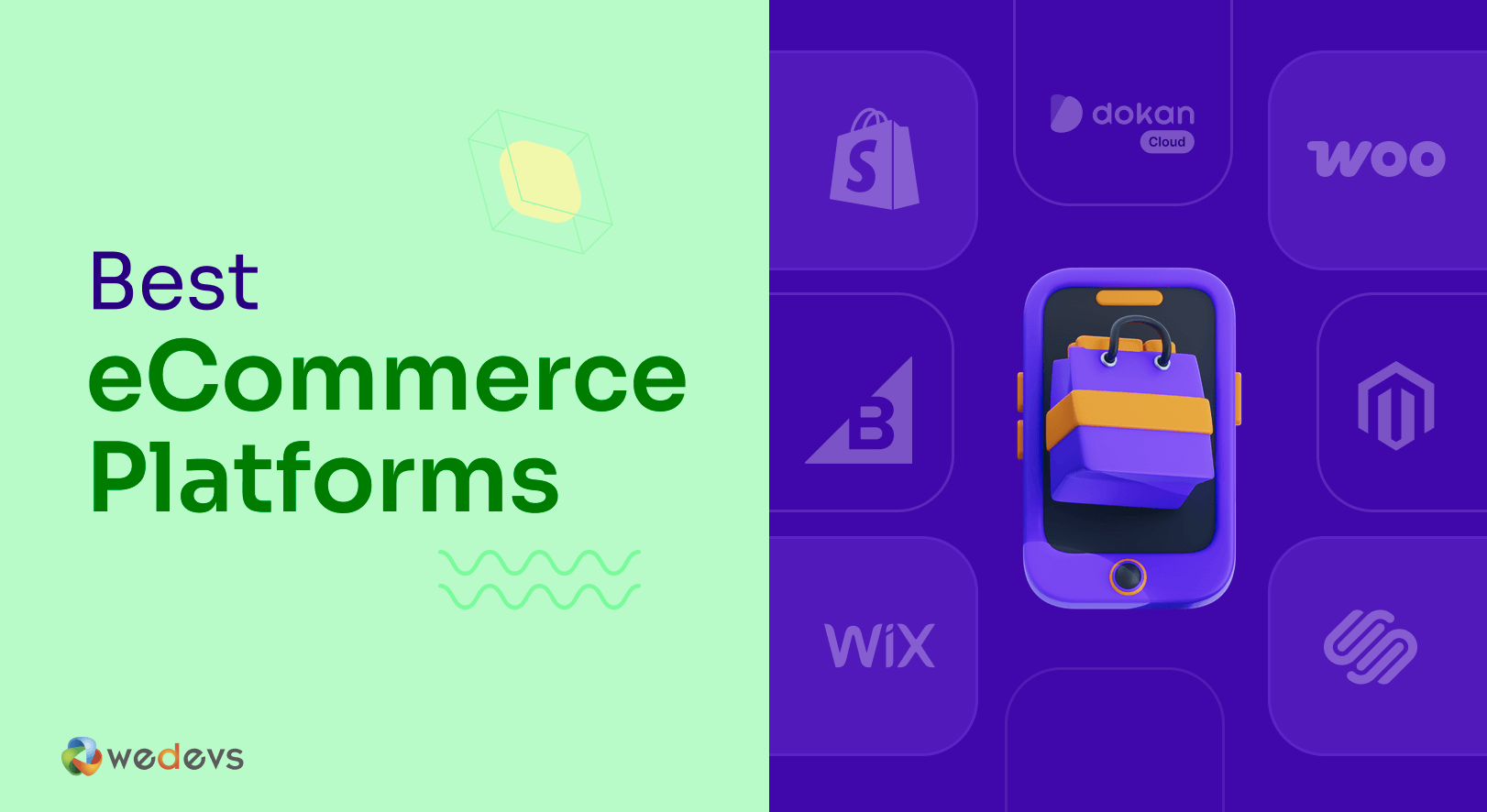
Best eCommerce Platforms to Start Your Online Business Today
Trying to find the best eCommerce platform to start your dream project? You're in the right place!
Finding the best eCommerce platform is like finding the best car! It's in the market, but you need to get it as your own.
But here’s where many people get stuck – choosing the right eCommerce platform. It’s not just about picking a name you’ve heard before. It’s about finding a platform that fits your products, your budget, and how hands-on (or hands-off) you want to be.
Some platforms are super beginner-friendly. Others give you more freedom to customize and grow. A few even handle most of the work for you.
In this blog, we’ll walk you through the best eCommerce platforms available right now. You’ll see what each one offers, who it’s best for, and how to decide which one’s right for you.
So, let's get started!
eCommerce Solutions: A Short Historical Overview
The first eCommerce transaction was an electronic fund transfer that occurred, was among banks using a secure private network. In the late 1970s, electronic data interchange (EDI) allowed companies to exchange necessary business documents through the Internet.
eCommerce or Electronic Commerce refers to business activities using computer networks
The late 1970s and early 1980s brought the popular electronic mail service that enabled fast and cheap online communication.
In the late 1980s and early 1990s, different electronic systems were developed for easy collaboration. Finally, in the 1990s, the World Wide Web enabled smooth and low-cost digital communication. Also, made possible a variety of business exercises for companies of all sizes.
eCommerce has three main characteristics-
- Technical (Networks, telecommunication, security, etc.)
- Legal (Information privacy, intellectual property, and taxation)
- Business (Marketing, supply chain management, payment, etc.)
The journey wasn’t as easy as it seems today. Although it started long before, online shopping became possible only after the internet was opened to the public in 1991.
Amazon.com is one of the first eCommerce websites in the US to start selling products online. After that, thousands of businesses, including top brands have followed their way.
The comfort and freedom, safety, time management, and user experience have made it easy to achieve phenomenal growth for eCommerce.
The eCommerce industry has 40 years of long and rich history. It continues to grow with new technologies, innovations, and almost all sorts of businesses entering the online market every day.
eCommerce today isn’t only an alternative way of making money; it’s a proven platform for any organization to be considered on a priority basis.
Why Big Brands Use eCommerce Platforms? (and Don't Build from Scratch?)
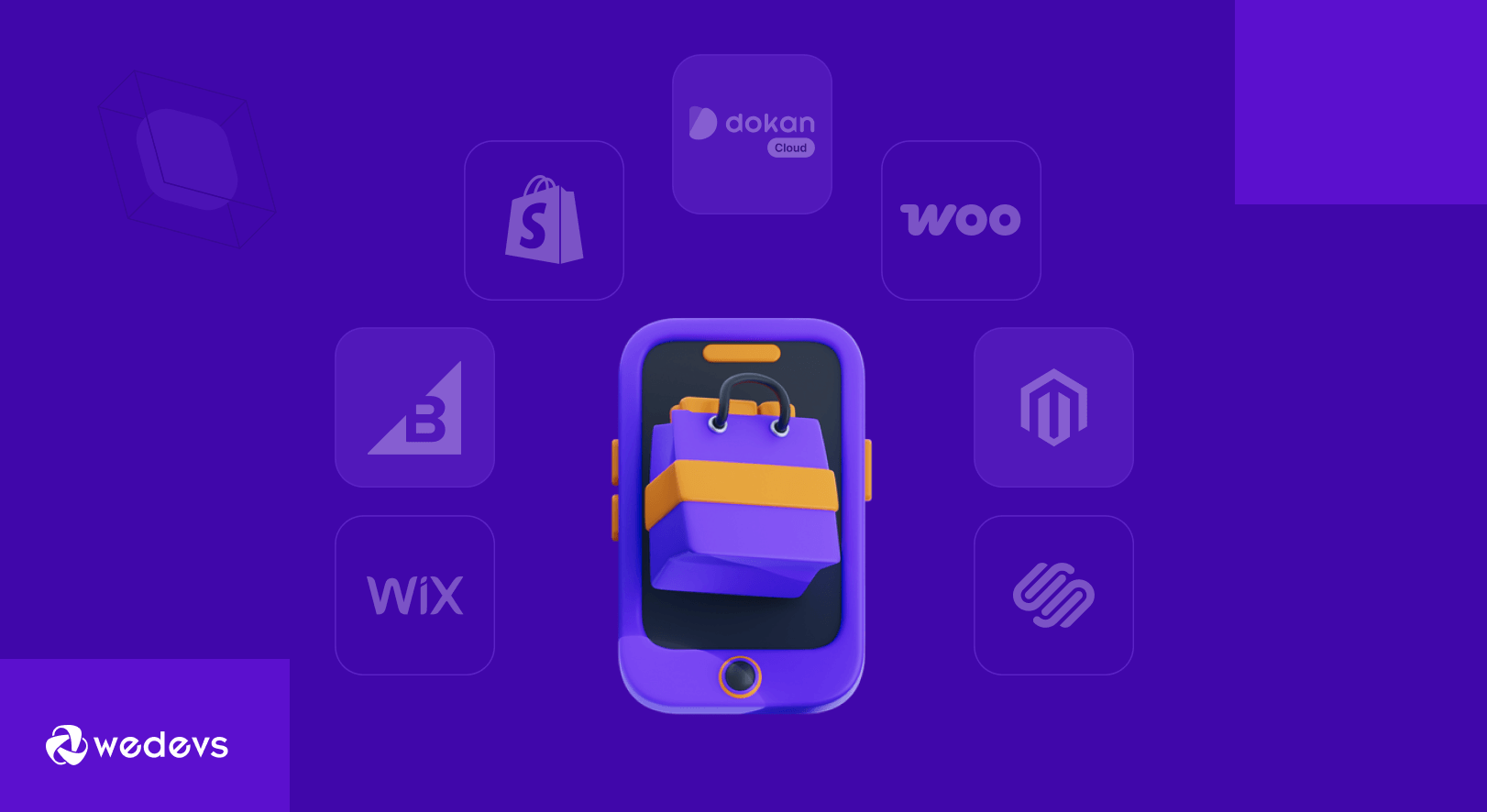
Online presence is something any organization can’t ignore. To maintain a real-time connection, to reach a new audience base, or simply to keep themselves updated all types of organizations now rely on the online platform.
Check some core reasons and benefits-
- An easy way to reach, connect, and communicate with the consumers
- The flexible way to reach new customers
- Starting, managing, and developing isn't a matter to worry about
- Scalability and customization are the two ultimate advantages
- Easy to build with awesome security
- Options to form members-only areas
- Outstanding feedback a low budget
- Efficiency to promote and ensure business growth
- Finally, it’s a matter of time. Anyone could just fall behind if they ignore it!
Not only that, it’s estimated that global eCommerce sales will reach 7.4 trillion dollars by 2028. That would surely make eCommerce a growing and profitable industry to be in.
7 Best eCommerce Platforms to Start Your Online Business in 2026
An eCommerce platform is basically a software application that empowers online businesses to run & manage their website, sales, and day to day operations.
There are three main types of eCommerce solutions in the market.
- Open Source (Free content management system)
- SaaS (Software as a service)
- CaaS (Commerce as a service)
SaaS and Open-source solutions are popular among businesses. CaaS is a growing trend regarding them. It is also a cloud-based solution like SaaS.
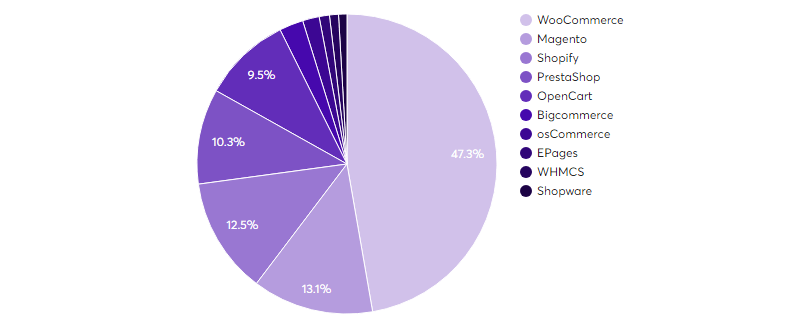
We are going to cover the top 7 eCommerce platforms with basic features, pros-cons, and the verdict. You will also get some awesome stores as examples to easily get the whole picture.
- Dokan Cloud
- WooCommerce
- Shopify
- Magento
- BigCommerce
- Squarespace
- WIX
Now, sit tight, and let's get started!
01. Dokan Cloud – Best SaaS Platform for Beginners
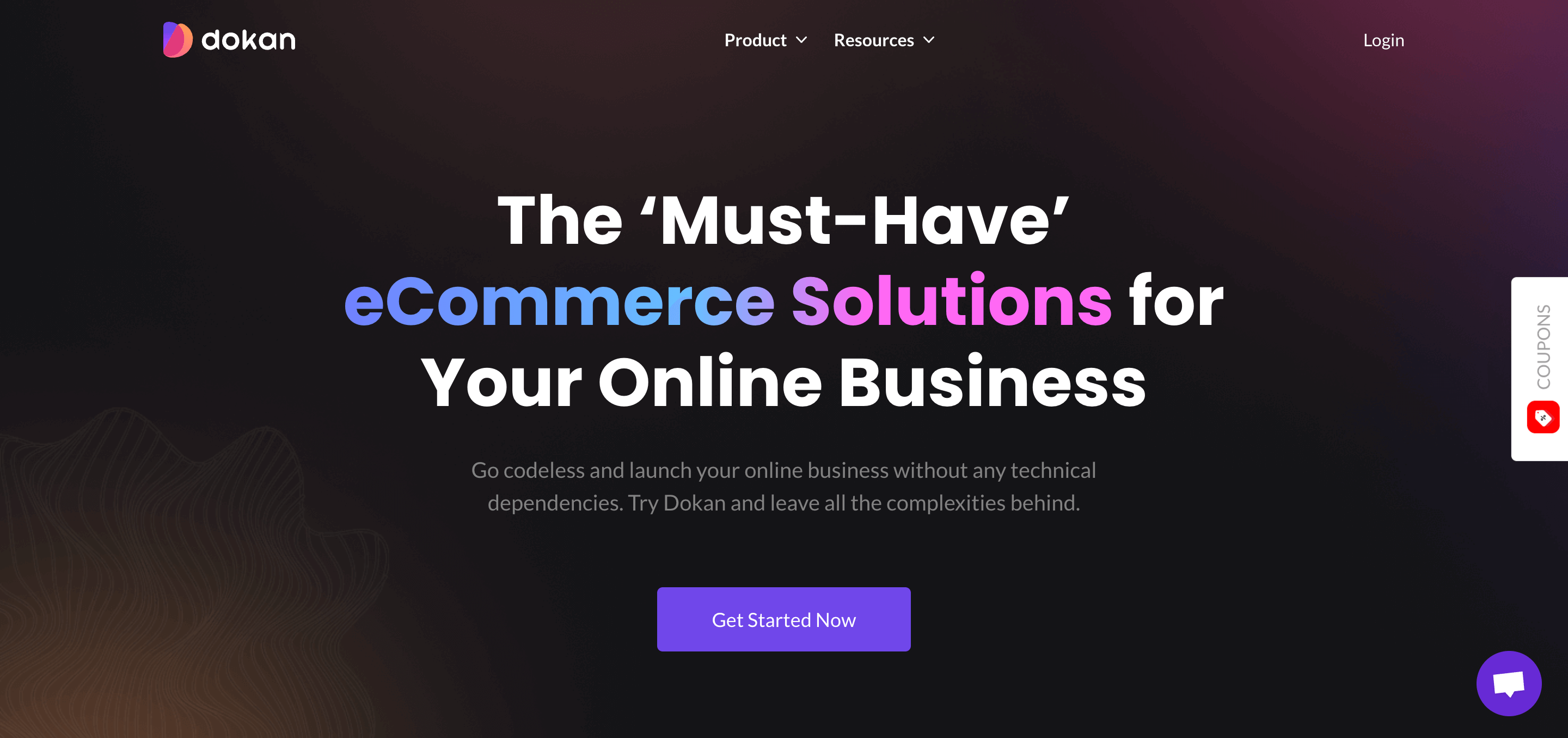
Dokan Cloud is a beginner-friendly, cloud-based eCommerce platform built to get your online store up and running fast.
You don’t need to deal with hosting, coding, or complicated setups. Just sign up, add your business details, and your store goes live in minutes. From there, you can upload products, set up payment gateways, and start selling right away.
One of its standout features is the built-in multivendor marketplace system. That means you can run a regular online store or turn it into a full-blown marketplace like Amazon or Etsy, no extra tools needed.
Noteworthy Features of Dokan Cloud
- Quick and easy setup, no tech skills required
- Clean, modern store design options
- Supports both single-store and multivendor models
- Secure and reliable cloud hosting
- Integrated payment gateway setup
- Inventory and order management
- Vendor management tools for marketplaces
- Automatic updates and backups
Who Should Use This Platform
Dokan Cloud is perfect for beginners who want a smooth, hassle-free start. It’s ideal for solo entrepreneurs, small business owners, and anyone who wants to launch an eCommerce site without dealing with tech headaches.
It’s also a solid pick for those planning to grow into a multivendor marketplace down the line.
02. WooCommerce – The Best eCommerce Plugin for WordPress and Most Popular Online Store Builder
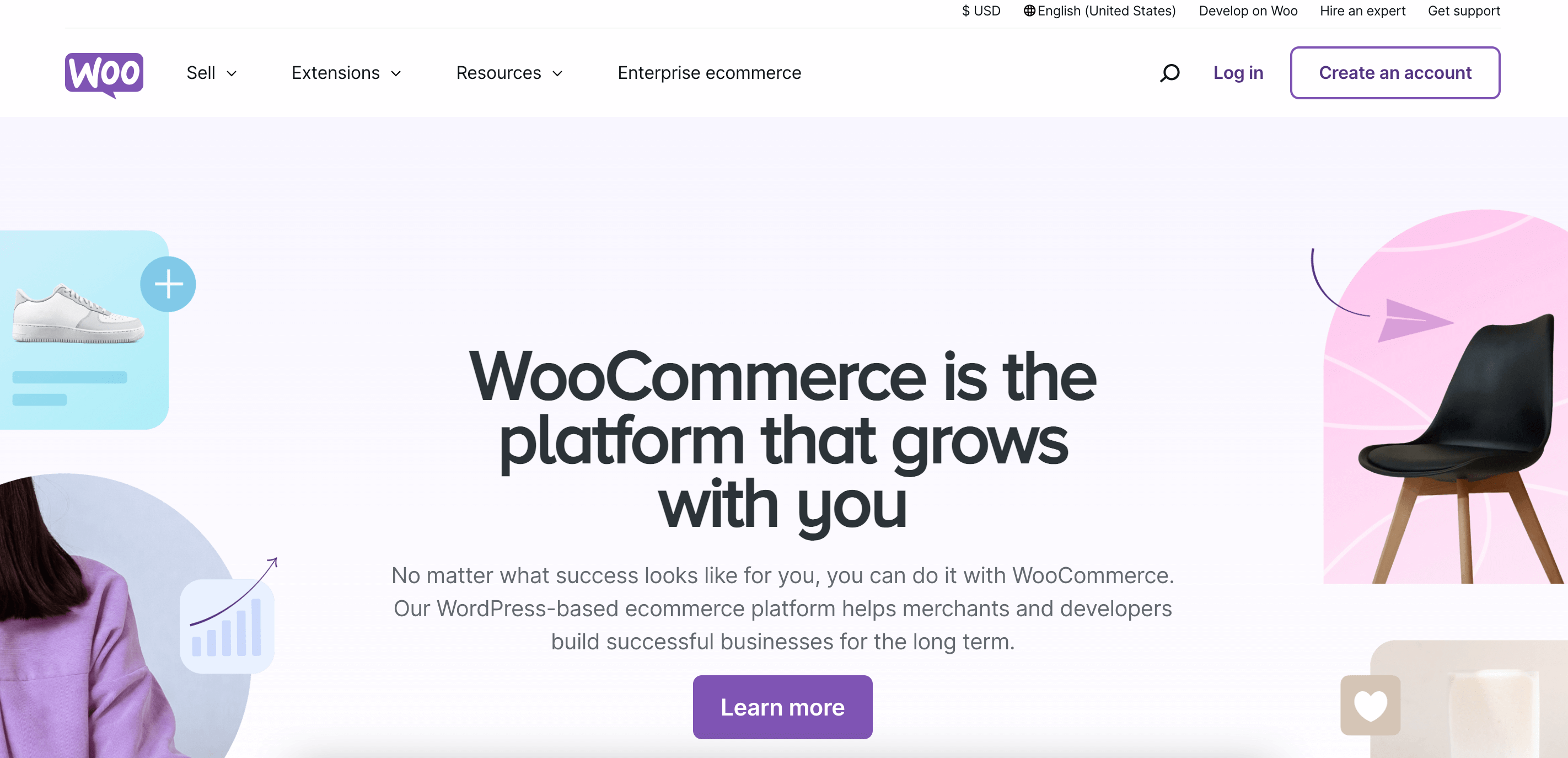
WooCommerce is a name in the eCommerce industry that needs no introduction. It’s a free WordPress plugin specially designed and developed for eCommerce. Nowadays WooCommerce is the most popular eCommerce platform out there.
Woocommerce comes with lots of handy features such as a secure payment gateway and shopping cart that serve really well. You can turn your Woocommerce single store into a WordPress multivendor marketplace anytime by just adding a free plugin like Dokan.
Noteworthy Features of WooCommerce
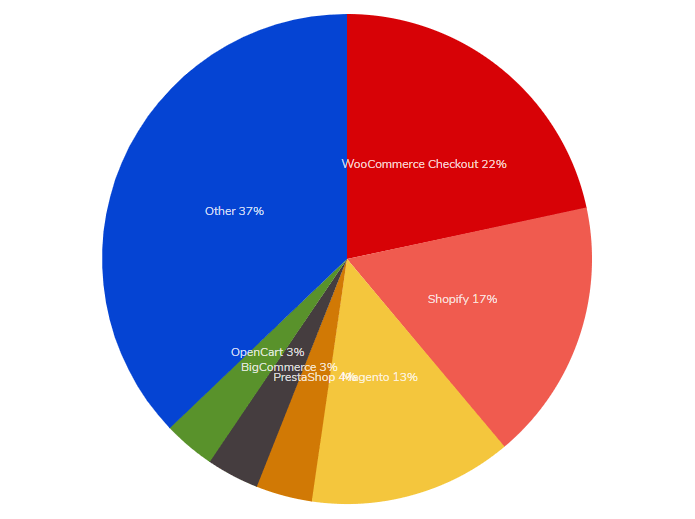
With over 258,924,308 downloads, WooCommerce powers more than 38.74% of all online stores.
- Easy drag-and-drop store setup
- Fully customizable as you need
- A vast collection of plugins and themes
- Secure and reliable
- Opportunity to get the best web hosting package
- Incredible series of eCommerce guides and tutorial
- SEO-friendly content management along with awesome WordPress support
Who Should Use This Platform
WooCommerce is a flexible eCommerce solution for all sorts of business organizations, especially for startups and mid-level businesses.
If you want to efficiently meet your success with a minimum budget and in a short period of time, Woocommerce can be the best solution for you. Moreover, you have the option to turn your store into a multi-vendor marketplace at any time.
03. Shopify- Premium eCommerce Solution
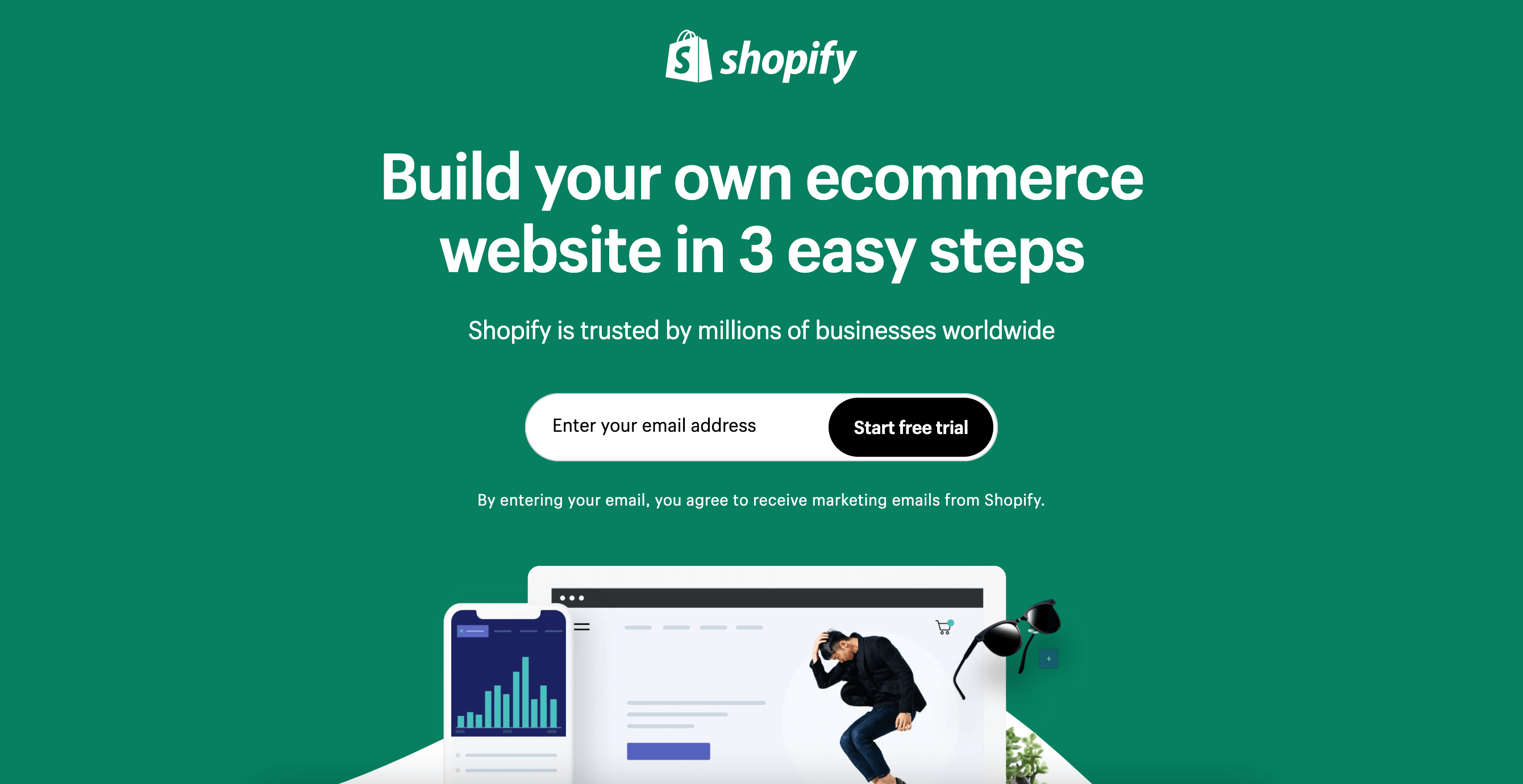
Shopify is one of the most popular eCommerce solutions in the industry. It’s famous for small shops because that is the market Shopify intends to serve. The secret behind Shopify’s success is the rich app store that makes it simple to extend the capabilities of your default web store.
Shopify offers hundreds of apps, more than any other competitor within the market. It also offers a pleasant selection of professional themes.
Noteworthy Features of Shopify
- Unlimited products and bandwidth
- An easy-to-use mobile app for managing payments and also your store
- Comfortable shipping carriers, fulfillment centers, and drop shipping
- Expert support to assist you in setting up your store
- A large community of store owners likes the WordPress community in the Shopify forums to exchange tips.
Who Should Use This Platform
If you are going to run a startup online selling a business, Shopify can give you a great start.
When you are thinking big, functionality and customization would be a fact with Shopify. Shopify provides a very limited collection of free themes and templates.
You need to spend money to make your site unique as you like. Moreover, you will have to pay to use its app store.
You can give this guide a read to know more About WooCommerce and Shopify: WooCommerce VS Shopify: The Real Comparison That Matters
04. Magento- One of the Best Multivendor Marketplace Builders

Magento is also an open-source-based eCommerce solution with a flexible shopping cart system. It's historically preferred by brands who have already invested in IT or development teams. They have launched a cloud solution in more recent years.
Noteworthy features of Magento
- Customer segmentation and personalization
- Dynamic rule-based product relations
- Responsive design themes
- Integrated B2B functionality
- Powerful admin experience
- Technical and account support
Who Should Use This Platform
The advantages of Magento include 100% control of your own eCommerce marketplace. It’s good for businesses that already doing well. When we talk about features and ease of use, Magento is one of the best solutions out there. But the cost, development, and support are the things you need to reconsider with Magento.
You can give this guide a read to know more About WooCommerce and Megento: WooCommerce VS Magento: The Battle Of Two Popular eCommerce Platforms.
05. BigCommerce- Best Ecommerce Platform for Startups
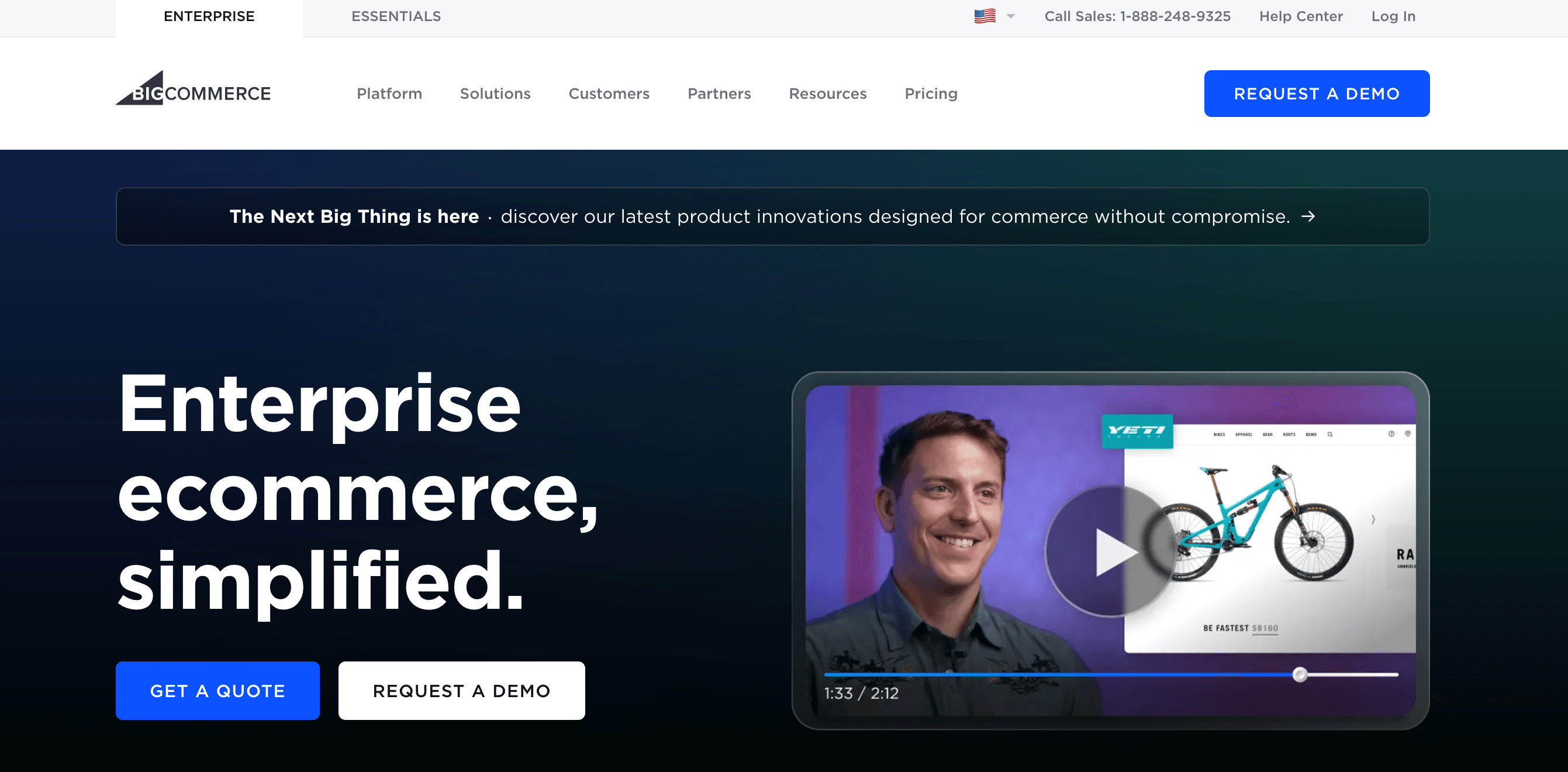
BigCommerce is one of the best eCommerce solutions with a viable and powerful interface. It has now more than 95000 live sites selling online and dealing with payments. So, there are reasons for keeping faith in their solution. It’s easily understandable that BigCommerce is popular for small- to medium-sized web stores.
BigCommerce offers more features to grow your online sales than other shopping cart software within the market.
Noteworthy Features of BigCommerce
- Awesome visual interface
- Strong security and reliability
- Support assistance 24/7
- Easy integration with eBay, Google Shopping, and more
Who Should Use This Platform
Although the pricing seems comparable to Shopify, the BigCommerce feature set is a bit better for each plan. BigCommerce works well with small companies. You can also consider it for your mid-level project. But it’s not so perfect for enterprise-level businesses according to experts’ saying, although it offers a totally different solution.
Budget is also a fact with BigCommerce. Try to find out what you need the best and BigCommerce could offer that or not.
06. Squarespace- One of The Best Ecommerce Platforms for Growing Brands
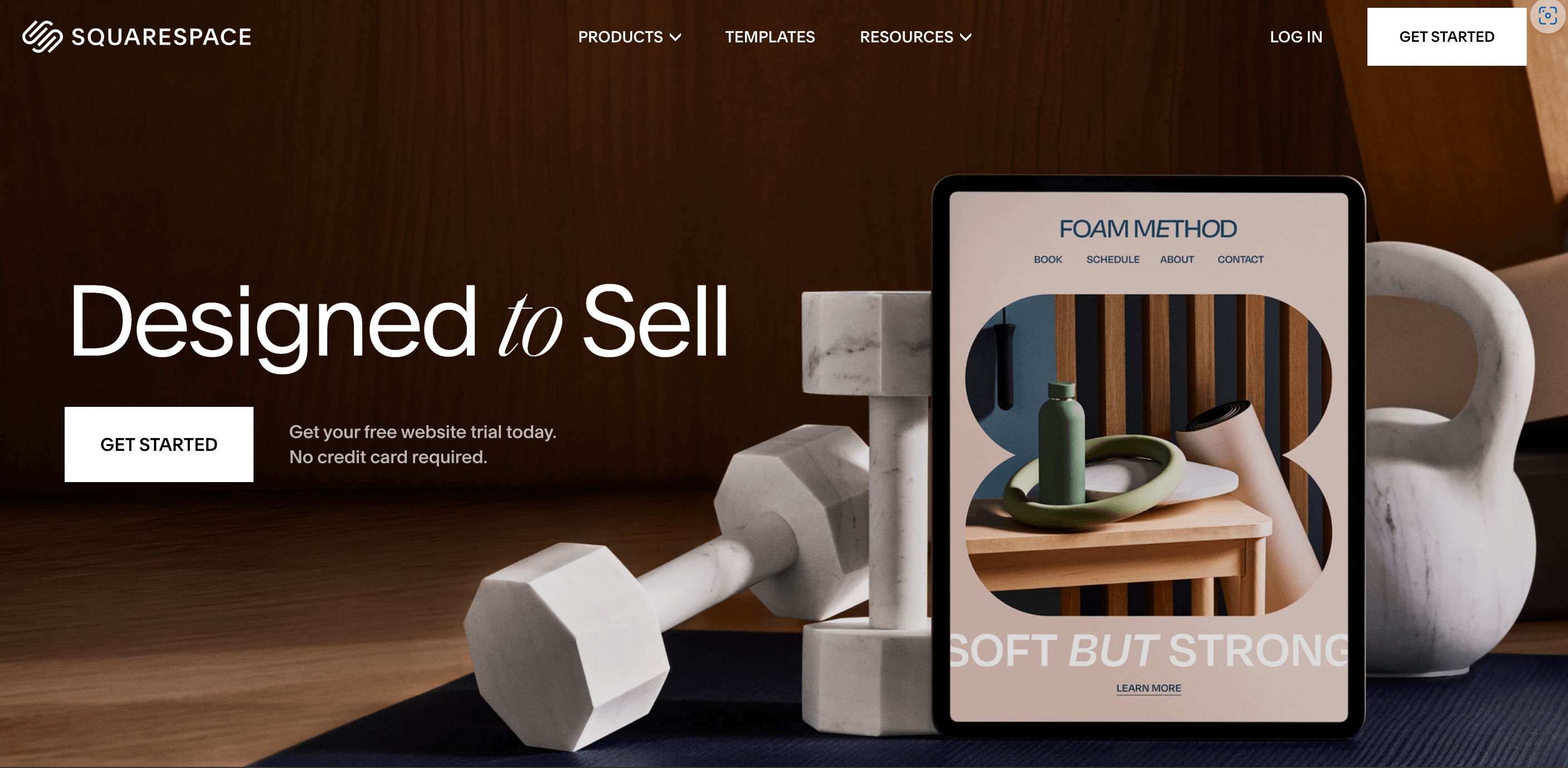
Squarespace is an all-in-one solution to create beautiful websites. It was launched in 2004 as a basic drag-and-drop website builder. Today, Squarespace has over 1 million users, which is proof of its durability and care for customer satisfaction.
Squarespace has a fully loaded eCommerce solution with a traditional web-building solution.
Noteworthy Features of Squarespace
- Unlimited products adding opportunities on both basic and advanced plans
- Countless pages, galleries, and blogs with unlimited bandwidth, storage, and contributors
- Easy drag-and-drop site builder
Who Should Use This Platform
Squarespace is a great platform that is perfect for businesses that want fresh and rich imagery templates. It has a great product listing option. Lite and Pro, both of its plans allow unlimited products, which is a tremendous advantage for retailers of any size.
One downside is that Squarespace has limited integrations for payment gateways. Currently, they only offer Stripe integration. And you know Stripe isn’t always available to vendors from smaller countries.
07. Wix- Popular Drag & Drop Website Builder
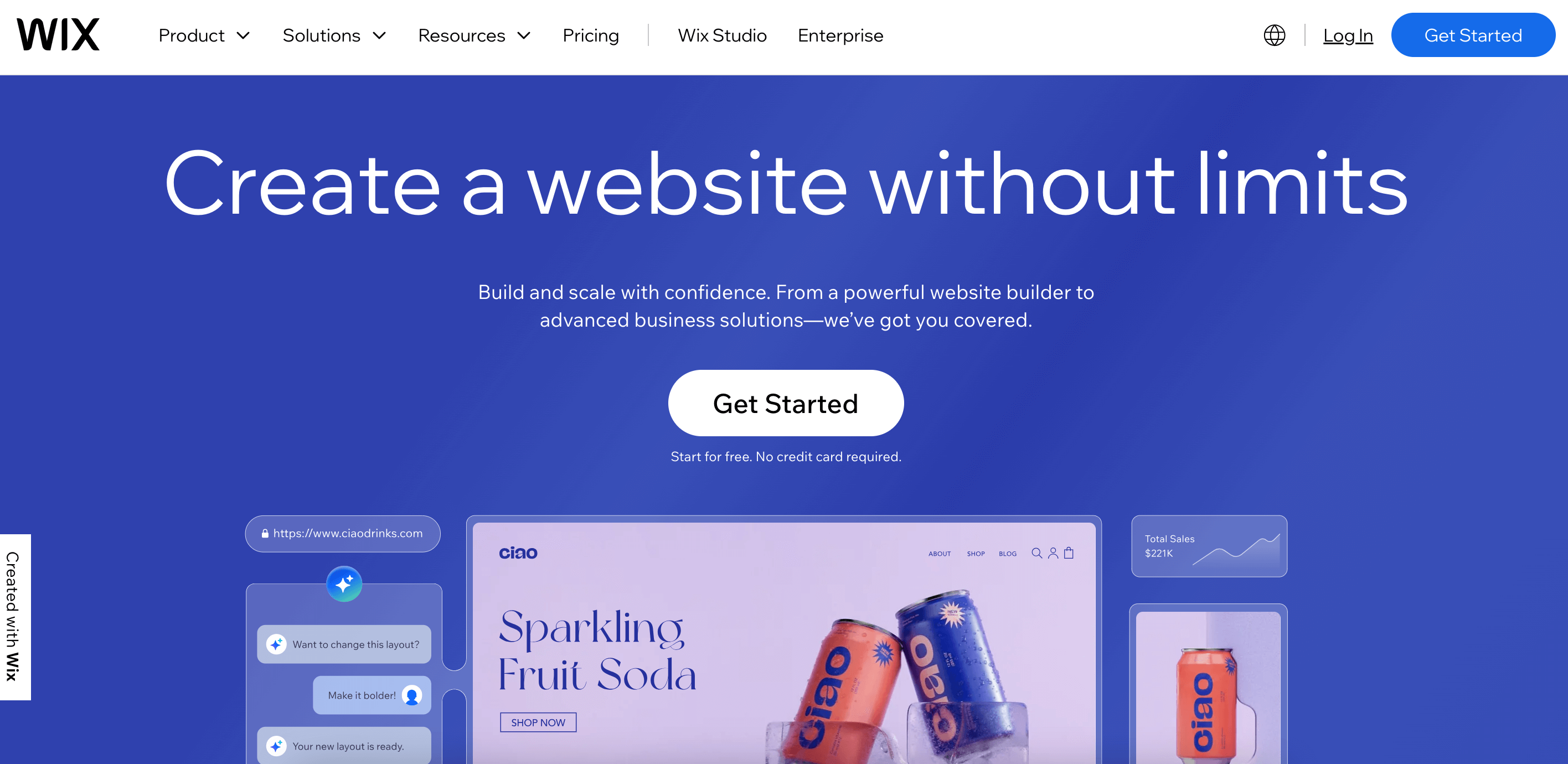
Wix is basically a free website builder that gained popularity in a very short period of time. They also offer eCommerce solutions as part of their premium packages.
Noteworthy features of Wix
- Visual editor with live examples and template reference
- Low pricing and easy setup, perfect for testing the waters
- No transaction costs, just the monthly fee
Who Should Use This Platform
Wix eCommerce solution doesn’t surprise you with its features, but it has enough to make your shop up and moving. Wix’s excellent visual interface design makes it special. You can easily design and differentiate your shop’s elements in any color you want.
When you are running a single-product store or selling a limited number of products, Wix could be one of the best suits for you.
Getting the Best eCommerce Platforms: What Are Your Benefits
The best eCommerce platform offers businesses the capability to customize product information. The key advantage of eCommerce solutions is empowering organizations to reach a broader market. These platforms also offer a low-cost channel to gather customer feedback.
In addition to the scalability and security of your data- as we mentioned earlier, eCommerce platforms offer a handful of operational advantages and business tools.
- Easy product management suite
- Pricing
- Promotions
- Search capabilities
- The ability to personalize sales and services as you want
The impact on operating costs is varied with different eCommerce service providers. As per a survey report by the European Union, some users (vendors) would prefer to sell directly in order to avoid the fees and margins charged by the platform.
However, platforms are much cheaper than physical stores in all senses.
What Is the Right Time to Start Your eCommerce Business
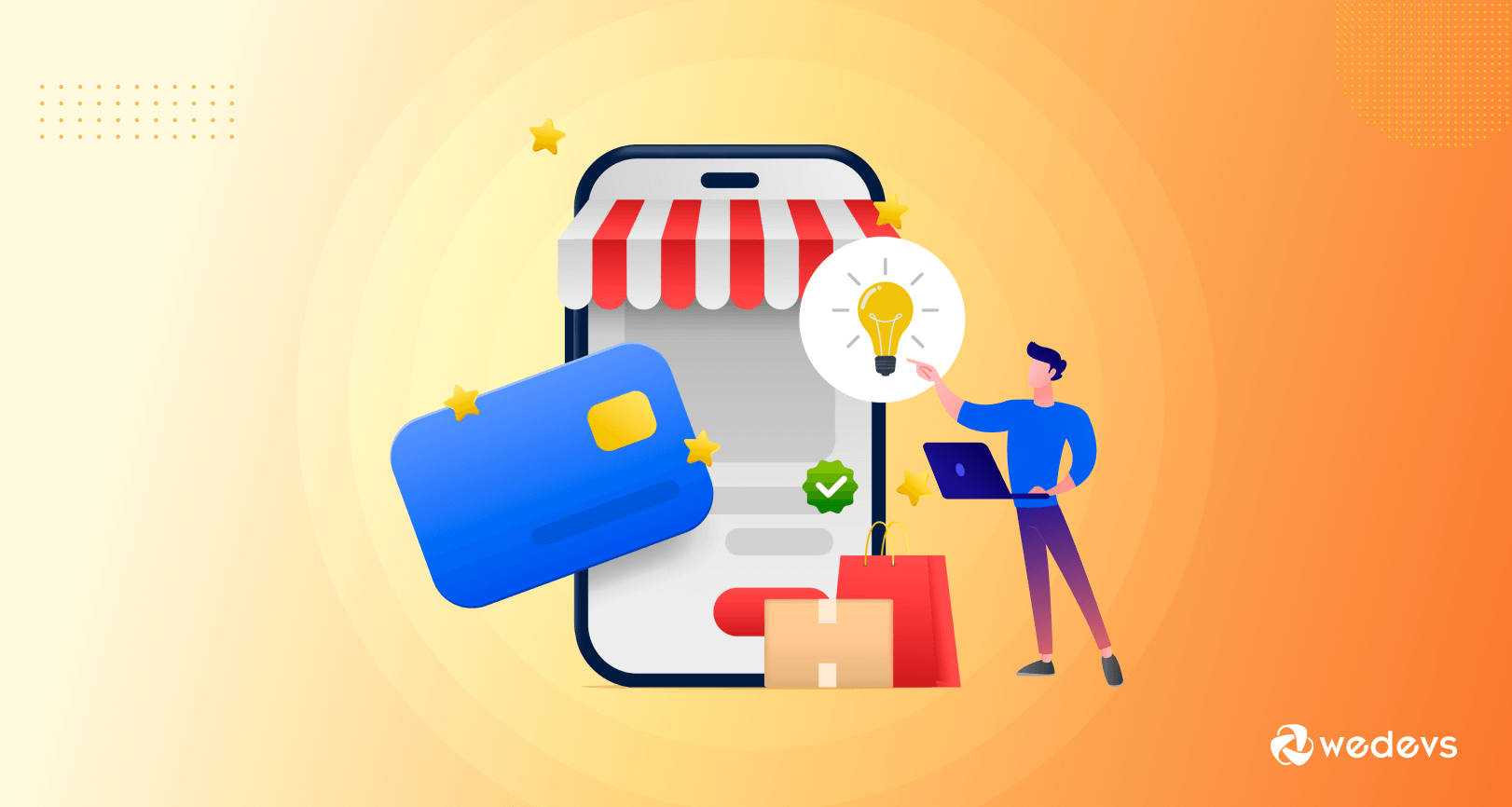
There is no certain time to start your business using an eCommerce solution. Time isn’t a matter in the eCommerce industry when you have a plan or idea. Just try to understand the value of your idea. Ask yourself some questions-
- What problem do you want to solve?
- How efficiently your idea can solve that particular problem?
- If there are already some competitors- how do they solve?
- How do you differentiate your offerings regarding them?
- How easily and cheaply you can provide your service?
- And finally, how long people are ready to pay to solve that problem?
If you are satisfied with getting the answers from your insight, you are just a step away from your success! Get ready to start!
Go ahead with creating a unique eCommerce marketplace of your own. Hundreds and thousands of people are waiting to be your partners-vendors to open a shop on your marketplace. And you know- today, success depends on ideas and differentiation rather than money or something else.
Most Common FAQs on the Best eCommerce Platform
Focus on ease of use, payment options, mobile responsiveness, security, customer support, and scalability. These features help you grow without switching platforms later.
Costs include the platform subscription, hosting (if required), payment processing fees, themes, apps, and marketing. Small stores often start with USD 30–100 per month.
Choose open-source if you want full control and plan to customize heavily. Choose SaaS if you want fewer technical tasks and a faster, maintenance-free setup.
Yes, but migrations can take time. You’ll need to move products, customers, orders, design, and SEO data. Many platforms now offer migration tools to reduce work.
Platforms with built-in multivendor features or strong marketplace plugins work best. Look for tools that handle vendor onboarding, commission settings, payouts, and product moderation.
Choose the Best eCommerce Platform & Build Your Business Today
To grow and shine in eCommerce, there is no scope to make a mistake while choosing your platform. Read the article carefully, you will surely be able to pick up the best eCommerce platform with ease. We explained most of the popular and powerful platforms in this post. Now it’s your turn to make a decision and get a go.
When you are done with your platform selection, this post will guide you on how to make it more engaging and user-friendly. And you know this is a never-ending process. So it's also important to choose a vendor who is really committed to providing real-time support.
Let us know- which platform is best in your opinion and why?… Wish you a very successful eCommerce journey.


